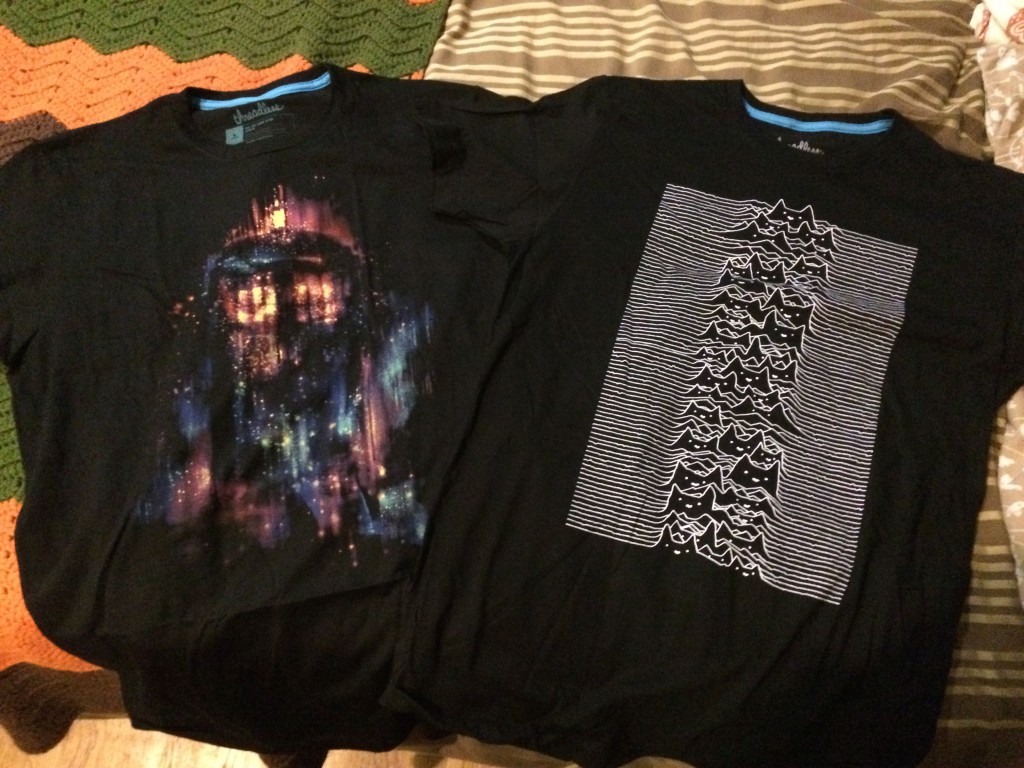Today marks ten years since Doctor Who came back on the air. It’s hard to believe so much time has passed!
In my opinion as someone who has been a huge fan of Doctor Who since my childhood many decades ago, writer-producer Russell T. Davies and the others responsible for bringing it back made absolutely the right decision in having the new program be a continuation of the classic series instead of a complete remake. It honored the past while marching boldly forward with modern sensibilities (and often much better acting, writing, direction, and special effects!). As a fan, I feel grateful to Davies and the rest of them, not just for bringing Doctor Who back, but for treating it with respect and bringing it back well.
From the first moment he appeared, I thought Christopher Eccleston was a revelation in the role of the Doctor. When I heard he would be leaving after the first season, I was devastated. I could have watched many, many more seasons with him. I resisted David Tennant for a while at the start of his tenure, but he quickly grew to become one of my favorite actors in the role ever. (In my personal top five, he’s second only to Tom Baker.) I could have watched many, many more seasons with Tennant, as well. (And Donna Noble, who remains my favorite companion of the reboot, and maybe my favorite companion of all time.)
Longtime readers of this blog know I never warmed to Matt Smith as the Doctor. He was great with comedy, less great with drama and the obligatory running down corridors, and absolutely dreadful, for reasons I still don’t understand, when it came to how the Doctor treats the women around him, even the ones who are supposed to be his friends. I thought the scripts got successively worse throughout his tenure until his final season, which was so spotty I was ready to throw in the towel for good. The 50th anniversary special, “The Day of the Doctor,” changed that for me, and I stuck around for Peter Capaldi’s first season in the role. Despite some glaring issues, I thought it was a step up and now I find myself at least a little more invested again.
The reboot also introduced us to several new, recurring aliens, chief among them the Slitheen, the Ood, the Weeping Angels, and the Silents. Of the bunch, I found the Ood most interesting and would love to see them make a return. The Weeping Angels were scary and interesting in the episode “Blink,” but for me it was diminishing returns after that. With each new appearance, they became something less than they were before. Part of the problem was that the rules and abilities of the Weeping Angels kept changing. The Silents were also scary and interesting at first, and I thought very spookily designed, but their plot line became such muddled nonsense that now I don’t even like to think about them. I thought the Slitheen were stupid from the start. They looked like giant babies and they farted all the time. Ugh. Doctor Who for six-year-olds. Aside from the Ood, I thought the reboot did a much better job with bringing back recurring aliens from the classic series. I got such a thrill seeing the Daleks make their first reappearance, and the Cybermen, and the Sontarans, and the Master! And then, finally, the Zygons showed up again, too! This is all catnip to a lifelong Whovian.
The Eccleston and Tennant years still remain my favorites of the reboot. To me, the show today ain’t what it was when it came back on the air in 2005. But then, Doctor Who is always changing, isn’t it? By the time the classic series reached its tenth year, it was already on its third Doctor, Jon Pertwee, who was as different from his predecessors Patrick Troughton and William Hartnell as Peter Capaldi is from Matt Smith, David Tennant, and Christopher Eccleston. Ten years into the classic series also brought us our first multi-Doctor adventure (“The Three Doctors”), the final appearance of Roger Delgado as the Master (“Frontier in Space”), and the last story with popular companion Jo Grant (“The Green Death”).
I’d love to see the new Who do something special to celebrate ten years — maybe they can finally convince Eccleston to come back for a multi-Doctor episode? — but I suspect they may not. We just had the 50th anniversary, after all. Also, though it’s been ten years since Doctor Who came back, due to an extra year’s semi-extention of the fourth season it’s not actually the tenth season yet, just the ninth. I expect they’ll wait for the official tenth season before doing anything to celebrate. They’ll have some distance from the 50th anniversary by then, too.
So, even though it sounds like I’m being critical of a lot of stuff here, I’m actually thrilled that Doctor Who returned to television ten years ago and has continued to be such a success. The show is unique in its ability to continually reinvent itself, a fact that has kept it going for five decades now. Will there be five more? It sounds daunting, but if the unexpected and unprecedented longevity of Doctor Who has proven anything, it’s that anything is possible. As the Doctor once said, “Time will tell. It always does.”


